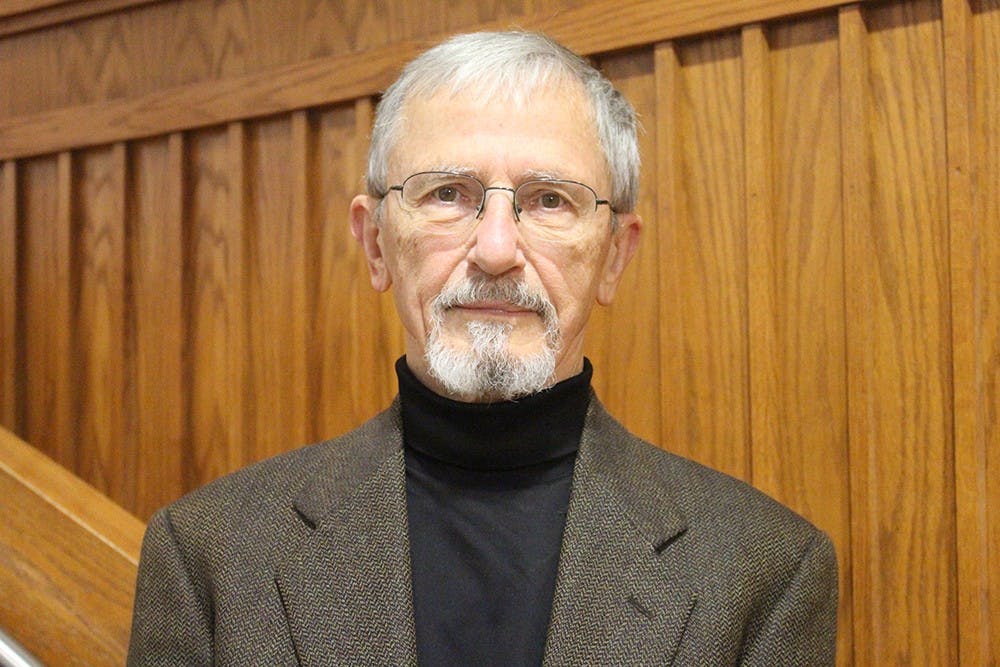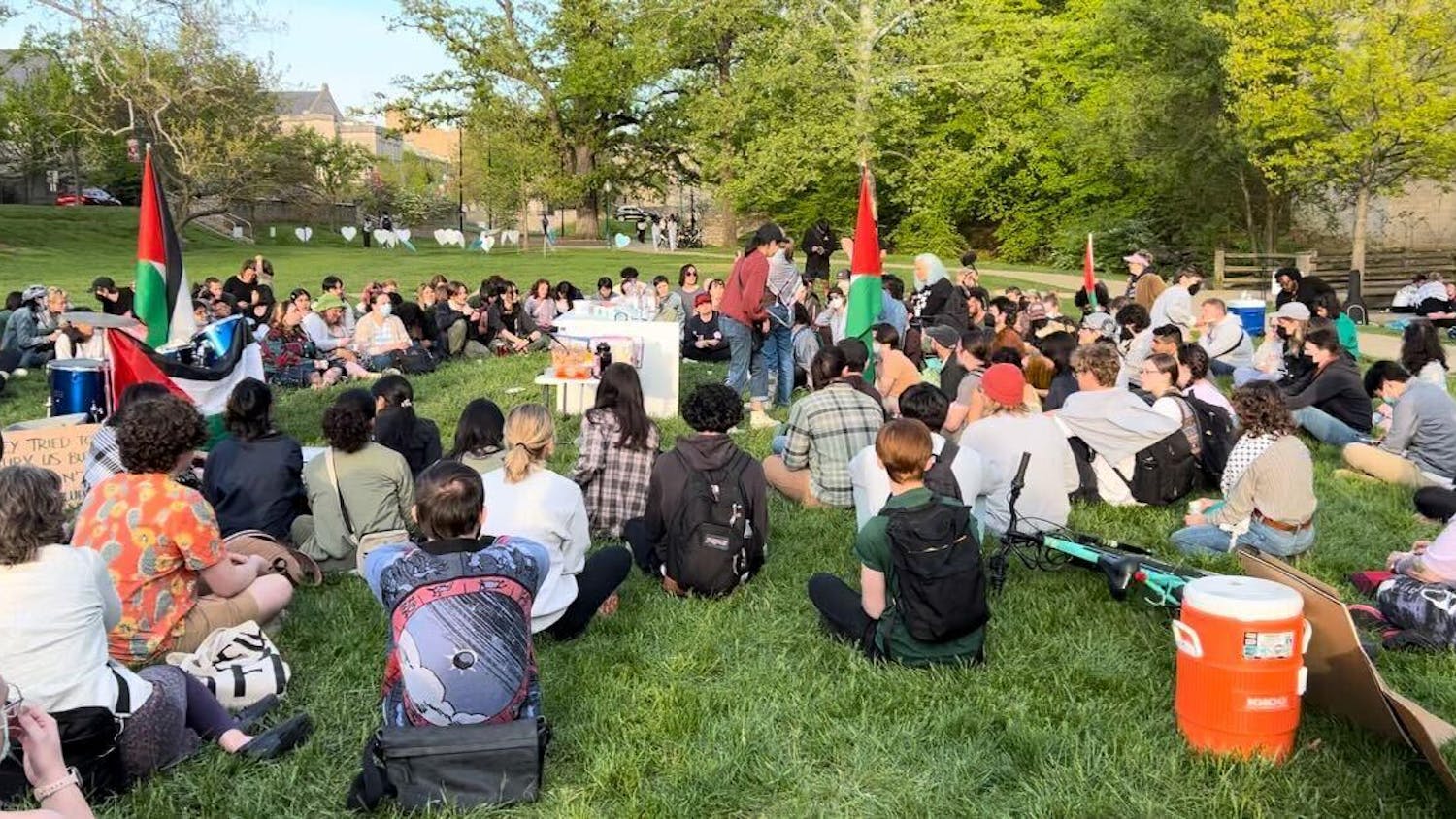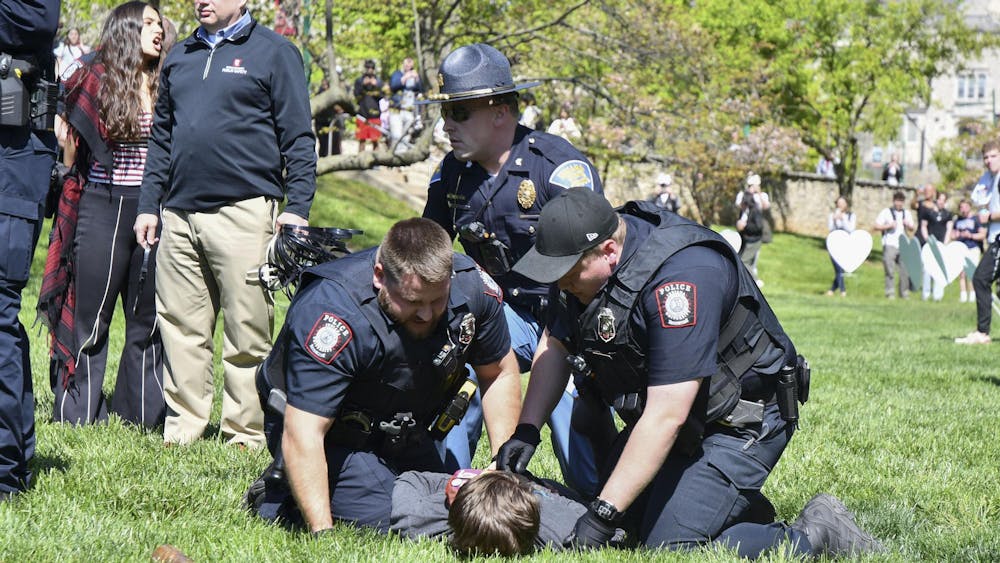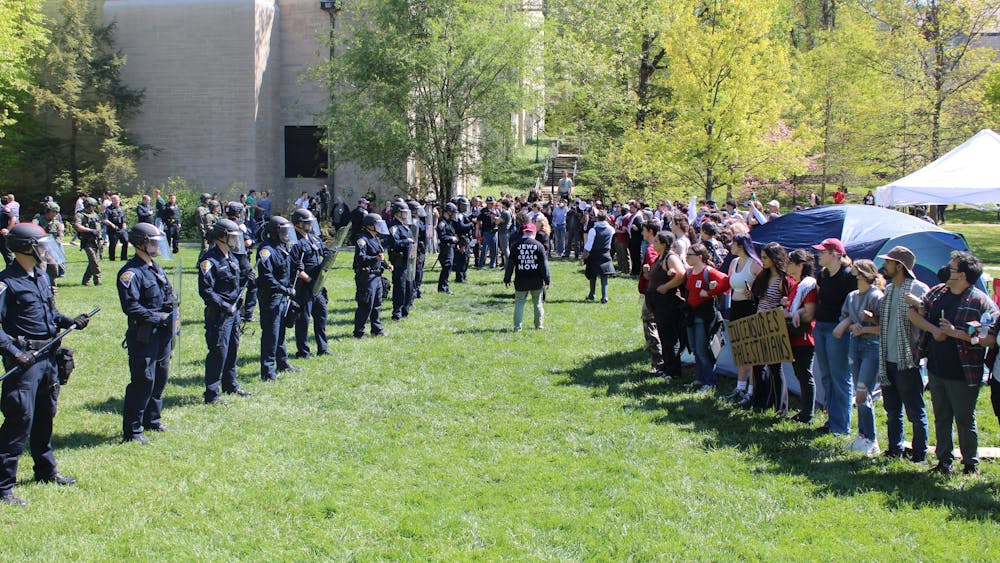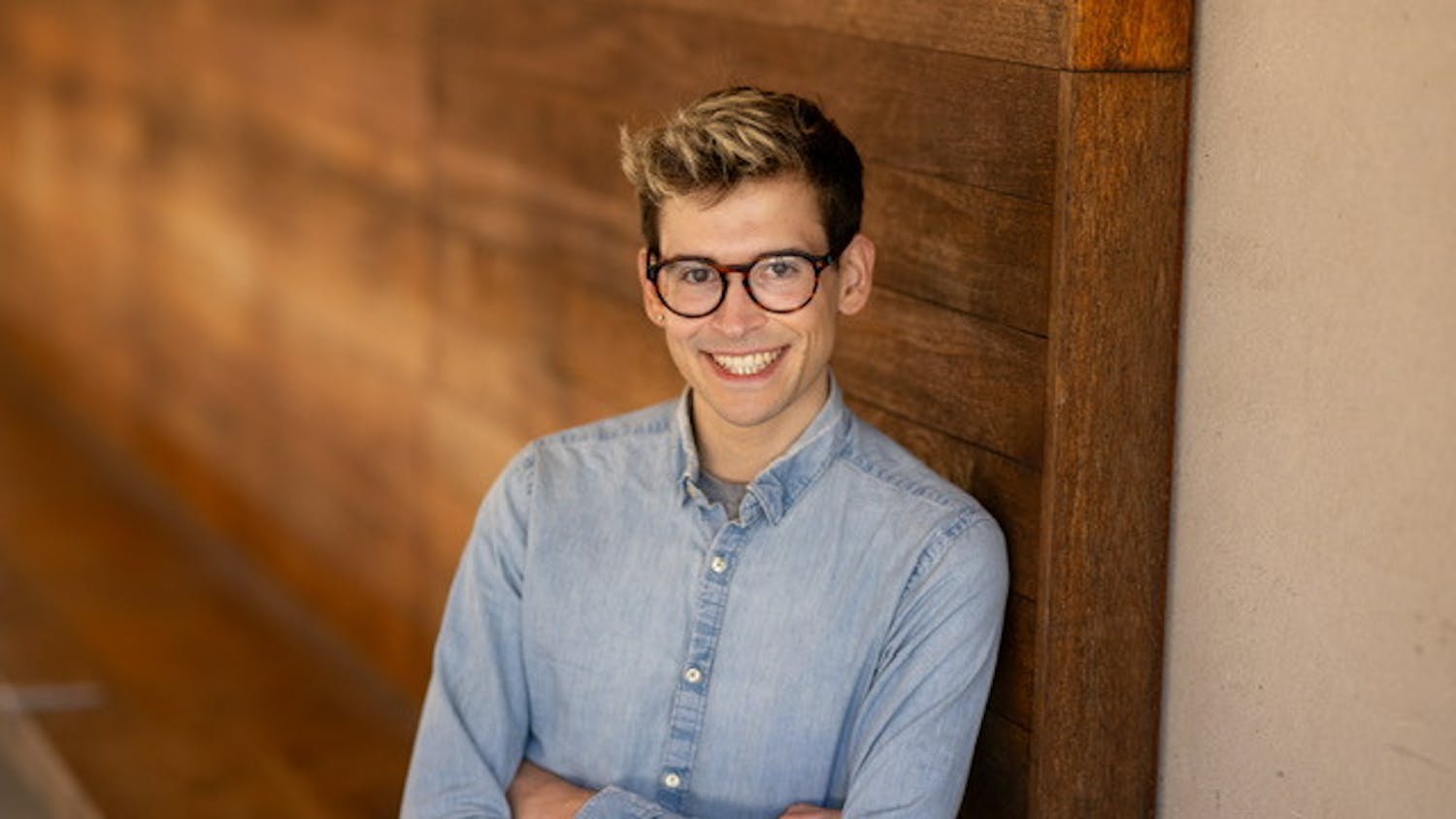Protestants in the alley, Catholics on the sidewalk.
Albrecht Holschuh can’t remember a Thursday when he wasn’t met by protesters on the periphery of Planned Parenthood in Bloomington while arriving for his shift.
He’s done the drive to the clinic at least once a month for more than a decade now, choosing to spend his time in retirement escorting women from the footstep of their cars to the doorstep of the facility without fear.
A car swung into the south entrance.
Holschuh walked forward as a woman parked and stepped out.
They walked together to the clinic doors against a backdrop of men, women and children holding signs urging the woman to reconsider.
“Just took the abortion pill? You can still change your mind.”
In the alley, a baby dozed in a woman’s arms. A fussy toddler lay squirming at his mother’s feet.
The mothers and their babies pressed the woman entering the clinic to consider the possible future of the cells dividing inside her — they were living proof that there was another option.
A pastor, a friar and a male doctor stood among the dissenters. They, like Holschuh, cannot bear children.
***
The square of asphalt is a microcosm of a national debate that has raged since the Supreme Court deemed abortions legal in 1973. Since then, medical advances have pushed the point of viability earlier, complicating the definition of when life begins.
Although women are directly affected by abortion regulation, men play dominant roles in pushing the cause at a local level and passing legislation affecting access nationwide.
Thursday, Dec. 3, the Senate passed a budget bill that would defund Planned Parenthood, 43 days after the Bloomington City Council voted unanimously in favor of a resolution supporting the clinic and six days after a gunman shot and killed three people in a Planned Parenthood clinic in Colorado. In both the local and national voting bodies, women made up less than a quarter of the representatives.
Though only women are directly affected by changes in access to abortions, the fabric of each side is woven with the voices of sons, fathers and grandfathers.
Holschuh is among them.
***
He never got the sex talk.
Holschuh lived in the aftermath of World War II in a border town in West Germany.
At 10 years old, he played in the open fields with his friends after school, discovering the ruins of war littered across his hometown, unfazed by the stories of children accidentally killing themselves with the munitions soldiers left behind.
One day, his expeditions led him to a dead fetus.
In a half-blown-out bunker, Holschuh found an area littered with rubble, sunlight creeping in from holes in the walls dimly illuminated the room.
There in the room lay a fetus on top of a stained, makeshift bed of newspapers. Holschuh and his friends glanced in the room, ran out of the bunker and never talked about it.
He grew up attending a Protestant church, but religion never educated Holschuh on sex.
Even so, he remembers recognizing the corpse as the possible remnants of a clandestine abortion.
***
Deborah Meader, Holschuh’s wife, didn’t fully learn about her body until she was 25 years old, married and trying to conceive.
Although she’s an escort and a former counselor at Planned Parenthood in Bloomington, no one taught her about sex at home or school.
Meader grew up before Roe v. Wade, a time when women were whisked away at the hint of an illegitimate child or found dead in a back alley procedure gone wrong.
As Meader searched for materials to help her conceive, she found “Our Bodies, Ourselves,” a book published in 1971 dedicated to female sexuality. The book was a revelation.
Maybe women like Meader could soon express their sexuality without fear of judgment. Without hesitating to visit a male physician to ask about sex and Planned Parenthood. Without needing to wear a fake wedding ring so she wouldn’t be hassled when she asked for birth control like Meader wore when she was 18.
***
It was the pastor who told Holschuh’s parents that he had left the Protestant church.
As Holschuh finished university in Germany and absorbed more about religion, he became convinced that man created God to manipulate other men.
To Holschuh, pregnancy is not a divine gift. It is a feat of biology.
“It really becomes a decision of society where to draw the line between the higher individuality of the potential mother and the incipient individuality of the developing future child,” he said.
Holschuh has met little opposition to his support of abortion rights outside of the clinic. But, he remembers one instance when he volunteered at a voting station.
A colleague turned to him in the hallway during a break and said, “You come from Germany with all that past. How can you support Planned Parenthood that kills babies?”
“A fetus is not a baby,” Holschuh replied.
***
By the time women met with Meader on Thursday mornings, they had usually made up their minds.
She worked as a counselor at Planned Parenthood for three years, advising women of their options before the procedure.
Meader needed to know the patient understood her choices: keep the baby, put the baby up for adoption or terminate the pregnancy.
Every session, Meader had a checklist she followed.
Introduce self and role.
She looked for any sign of distress. Distress could be hesitation. And hesitation is not an option when deciding what cannot be undone. Meader sent a handful of women home.
Validate and confirm patient’s choice.
Meader has seen hundreds of women. Like the woman who opted for a surgical abortion but needed to work second-shift that night. Or the stay-at-home mom with a stable husband and two kids who were about to pay off the car and house. Another baby would have caused too much financial strain.
Or herself.
She was a single mom earning her undergraduate with the hope of continuing to a master’s degree. She lived paycheck to paycheck, finding part-time jobs at University of Wisconsin-Milwaukee to sustain herself and her daughter.
She was uninsured and had put off school before to get married. Her closest family was in California. Her life couldn’t handle another baby.
Meader looked to Planned Parenthood for support in terminating her pregnancy.
***
Pro-life protesters on the right. Planned Parenthood supporters on the left.
The groups had come out to champion their causes at the entrance of City Hall in anticipation of the City Council’s reading of a resolution supporting Planned Parenthood in Bloomington.
The protesters stood in silence. Adults and students from neighboring high schools stood together holding signs.
“Their blood is on your hands.”
“Adoption: Loving option.”
Four children all in a row each held one yellow poster with a letter. Four men behind them did the same.
“LIFE”.
On the other side of the brick landing, a throng of pink-clad men, women and children stood in contrast to the auburn sunset. A giant birth control wheel was passed among the electric pink crowd.
A child clung to her mother’s back, wearing a pink Planned Parenthood shirt with matching pink leopard shoes.
Holschuh and Meader stood among the crowd of 50, hugging and chatting with other Planned Parenthood supporters.
“Testing! Treatment! Planned Parenthood!”
As the chanting began, Meader shouted the rally cry. Holschuh stood as if guarding the flock, part of the chaos yet removed from it. He stood at the front, arms crossed, facing the crowd and mouthing the words.

